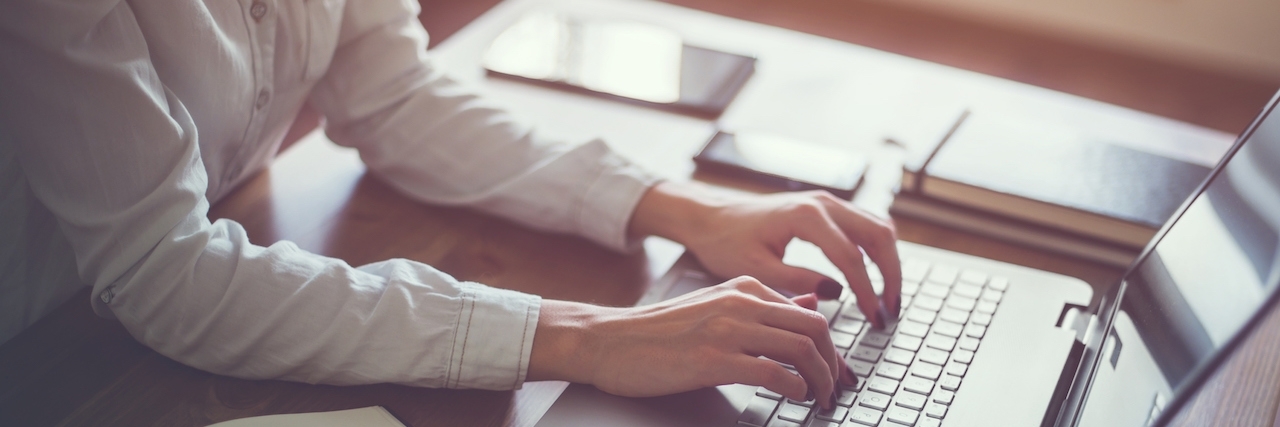One of the hardest things many people with chronic diseases have to deal with eventually is the idea of applying for Social Security Disability Insurance (SSDI). It’s money that is set aside out of everyone’s paycheck into a pool to be distributed as people need it. You have paid into it. I have paid into it. My children are paying into it as we speak. So why is it difficult to start the process of accessing a pot of money set aside for this very reason — eventual inability to work — and that we all paid into? It’s our money. The government took it from us to afford us this protection and income if the time came when we couldn’t work. It should be easy to take back and utilize, right?
Apparently not. You see, applying for disability isn’t really that hard. The forms are available online and they are very straightforward. It’s gaining the mindset that is difficult — the ability to say and accept the idea that you are affected enough by your chronic conditions as to not be able to work doesn’t come easily.
Imagine this: You have a job you love. It has worked out well over the years and became a career for you — a career you built by making decisions and moving into departments that specialized in things you were passionate about. You don’t even mind staying late or being on call. You love your job and you are happy doing it. But you are also sick. You have a degenerative chronic illness that is hard to predict. You need special accommodations to do your job. And that’s OK for now. There’s still so much you can do.
But time passes and your disease gets worse. Working becomes tiring and you need more time off due to flare ups, illness, and the need for your body to recover after some of these long days at work. And there’s pain that now requires stronger medications. And stronger meds bring side effects. You can still work, though. But as the disease takes its toll, going part-time seems a great option. It’s the best of both worlds, but can it last? That becomes the fear in your heart. You want to work. You love to work. But working is taxing on a body that fights itself. Working is now exhausting and meds don’t help that. And when it finally gets to the point that your job pushes you beyond the limits of what your body can tolerate, you have to make the decision: Do I apply for disability, or don’t I?
Here’s what is really at stake. I haven’t met one person yet that wanted to give up working. So we wait too long before we finally apply. To us, losing our jobs is losing a part of us. And being chronically ill, we may already feel “broken” and “less than” to begin with. Which brings us to real reason applying for SSDI is so hard. We have to admit we are now disabled, enough so that we can no longer find a way to make our careers work and being at home is the better — healthier — option. And that can be tough to admit. Our society is so rooted in being someone, producing something, being “important” somehow that even stay-at-home moms are given a hard time. It does not bode well for a young chronically ill Sjogren’s syndrome or lupus patient who can barely walk and whose brain fog is so thick it can be cut with a butter knife.
I won the right to use the label “disabled” in October 2015. But I still have trouble accepting it. In my mind, I am useful. But there is no current job I can physically do. So what use do I actually have? That’s the real quandary behind disability: Did our job define us, and who are we now that we are disabled and can no longer do that job?
I feel lost a lot. I can no longer help the people I did. And I loved helping. I am considering volunteering. But I don’t have a car so I can’t get out much. And how would volunteering be different from a job? Could I even handle it? Most days, I feel like my life doesn’t start until my husband and kids get home. But I don’t want to feel that way. I want to be productive. I want to matter.
This is the basic fear when applying for disability and I for one still struggle with it. Yes, I am disabled. Yes, I deserve the $852 per month I get because I paid into the system. But I am not actually doing anything to earn it. I don’t work. But I am also not worthless. No one is. There is just a period of time between gaining disability and moving forward in your life that is very dark and scary. We all hit it and we will all overcome it.
Change is always hard and labels don’t help. They can keep you down when it’s time to reboot. It’s OK not to have a plan for awhile. Take time to discover an inner passion. Take chances. Experiment. Disability isn’t the end of being productive, we just have to find a new way to fulfill that goal. And we will. I have yet to meet a person who only had one skill in life. Your new skills may be hidden, but I’m sure they’re there. Now is your time to find those hidden talents and make the most out of this new chapter in your life. I’m writing again. After 28 years, I’m writing again. What can you do? Go find out! I’ll bet it’s exciting!

